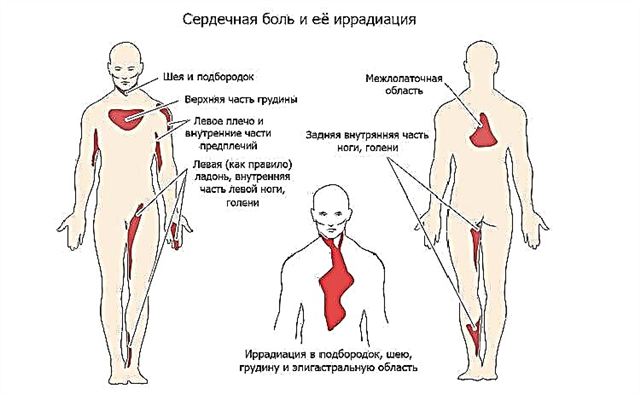Throat diseases include mycotic, viral and bacterial lesions of the tissues of the lymphoid ring, pharynx and larynx. To stop pathological processes in the ENT organs, drugs of etiotropic and palliative action are used, which destroy the pathogenic flora and eliminate the symptoms of pathology. If there is a sore throat and it hurts to swallow, how to treat the inflammation?
 The principles of treatment depend on the type of infectious agent, the age of the patient and the stage of development of the disease. The scheme of conservative therapy includes drugs of systemic and local action. The former destroy pathogens not only in the foci of inflammation, but throughout the body, and the latter inhibit the development of bacteria and viruses directly in the places of lesion of the mucous membranes.
The principles of treatment depend on the type of infectious agent, the age of the patient and the stage of development of the disease. The scheme of conservative therapy includes drugs of systemic and local action. The former destroy pathogens not only in the foci of inflammation, but throughout the body, and the latter inhibit the development of bacteria and viruses directly in the places of lesion of the mucous membranes.
Pathogenesis
Why does the throat hurt and it hurts to swallow? Pain is a symptom that signals the presence of pathological processes in the body. The main mechanism of discomfort in the mucous membranes of the throat is inflammation. Catarrhal processes in the ENT organs are associated with the active reproduction of pathogens, whose metabolites poison the body and provoke the destruction of ciliated epithelial cells. Why it happens?
Conditionally pathogenic microorganisms are in the respiratory organs, but due to their low number, they do not pose a threat to human health. However, a decrease in the body's resistance caused by hypovitaminosis, chronic diseases, anemia, etc., becomes an impetus for more active reproduction of pathogens.
Waste products of pathogenic microorganisms have a destructive effect on the state of cell membranes. As a result of peroxidation of cellular structures, organic compounds are formed - prostaglandins. They are not mediators of pain sensations, but they sensitize nociceptive receptors in relation to the main mediators of pain - bradykinin, histamine.
To eliminate a sore throat when swallowing, drugs are used that inhibit the synthesis of a special enzyme - cyclooxygenase. It is he who participates in the production of prostaglandins, which causes allergic reactions and inflammation of the soft tissues.
Etiology
What is the main cause of discomfort in the throat mucosa? Pain is a consequence of the development of pathogens in the airways. Provocateurs of pathological processes can be:
- staphylococci;
- Pseudomonas aeruginosa;

- Proteus;
- influenza virus;
- streptococci;
- yeast-like fungi;
- dysentery stick.
The above microbes, viruses and fungi provoke the development of diseases such as tonsillitis, pharyngitis, laryngotracheitis, throat candidiasis, laryngitis, bronchitis, etc. Pathological flora can be localized in lymphadenoid tissues or ciliated epithelium of the oropharyngeal mucosa. Untimely destruction of pathogens can cause serious complications or chronic inflammation.
The greatest health hazard is sore throat caused by streptococci..
Principles of therapy
How can you relieve a sore throat when swallowing? In the absence of serious complications, the patient is prescribed drug therapy. The treatment regimen includes drugs that stop not only pain, but also the cause of its occurrence - pathogens. Depending on the causative agent of the infection, antiviral, antimycotic and antimicrobial drugs are used as drugs of etiotropic action.
In order to quickly cure an ENT disease and prevent complications, the patient is prescribed a complex treatment using not only tablets, but also rinses with inhalation. As a rule, the following groups of medications are used to eliminate pain:
- antimycotics - inhibit the reproduction of yeast-like and mold fungi that provoke the development of mycoses and candidiasis;
- antiviral agents - destroy most strains of viruses that cause inflammation of soft tissues; used in the treatment of pharyngitis, viral sore throat, flu, laryngitis, etc.;
- antibiotics - prevent the growth of gram-positive and gram-negative bacteria, which cause purulent inflammation of the palatine tonsils and mucous membranes of the oropharynx;
- local anesthetics - reduce the sensitivity of pain receptors, which helps to eliminate discomfort when swallowing saliva;
- anti-inflammatory drugs - inhibit the synthesis of inflammatory mediators, thereby suppressing pathological processes in the cells of the ciliated epithelium;
- antipyretics - increase the body's heat exchange with the environment, which helps to eliminate hyperthermia and fever.
The optimal treatment regimen can only be determined by a specialist - an ENT specialist, a therapist or a phonologist. During the course of therapy, the doctor may replace some drugs with more effective ones in the absence of positive dynamics or an allergic reaction to the components of the drug.
Antibacterial drugs
Antibiotics are a group of medications used to suppress or destroy prokaryotic cells, i.e. bacteria. They are used in the treatment of purulent tonsillitis and any ENT diseases complicated by the development of sinusitis, sepsis, pneumonia, bronchitis, etc. If the spread of infection is not stopped in time, this can lead to swelling of the mucous membranes, making it difficult for the patient to breathe.
The following antibiotics are used to kill various strains of bacteria:
- "Pancef" is a cephalosporin antibiotic that destroys the cell structures of bacteria; used in the treatment of pharyngitis, tonsillitis, tracheobronchitis, etc.;
- "Panklav" - a drug from the group of penicillins, destroys most of the microbes that synthesize beta-lactamase;
- "Amoxicillin" is a semi-synthetic penicillin drug, the components of which are active against gram-positive (streptococci, staphylococci) and gram-negative (Klebsiella, Escherichia coli) microbes;
- "Ciprofloxacin" is a fluoroquinolone medication that eliminates purulent-inflammatory processes in the mucous membranes of the ENT organs and palatine tonsils;
- "Ofloxacin" is an antibiotic from the group of fluoroquinolones that predominantly destroys gram-negative bacteria;
- Sumamed is a broad-spectrum macrolide that inhibits the development of aerobic and anaerobic bacteria; used in the treatment of bacterial infections complicated by otitis media, sinusitis, sinusitis, etc.;
- "Macropen" is a macrolide preparation, the components of which are resistant to bacteria and intracellular pathogens - chlamydia, mycoplasma, etc.
Important! Antibiotics negatively affect the intestinal microflora, therefore, probiotics must be taken during antibiotic therapy.
Antiviral drugs
 Can antiviral drugs relieve sore throat when swallowing? Antiviral drugs help destroy pathogens that cause the development of influenza, pharyngitis, bronchitis, laryngitis, viral sore throat, etc. According to the principle of action, they are divided into several groups, namely:
Can antiviral drugs relieve sore throat when swallowing? Antiviral drugs help destroy pathogens that cause the development of influenza, pharyngitis, bronchitis, laryngitis, viral sore throat, etc. According to the principle of action, they are divided into several groups, namely:
- interferon preparations - stimulate the production of interferon in the body, which takes part in the destruction of pathogenic viruses;
- etiotropic agents - interfere with the synthesis of neuraminidase or block ion channels, as a result of which the development of viral pathogens stops;
- immunostimulants - stimulate humoral and cellular immunity, thereby increasing the body's resistance to various pathogens, i.e. viruses, bacteria, protozoa, fungi, etc.
The attending physician selects the drug based on the patient's history, type of disease and clinical manifestations of pathology. Some types of medicines have a wide spectrum of action. They may include components that help eliminate inflammation, pain, hyperthermia and swelling of the pharyngeal mucosa.
It is undesirable to bring down the temperature at the initial stages of the development of ENT disease - this is due to a decrease in the body's natural defenses.
The effectiveness of many drugsin antiviral action has not been proven, which is why only a specialist should deal with the choice of suitable drugs.
In particular, interferon preparations are effective only in the form of injections, therefore, using tablets to intensify the synthesis of interferon is practically useless.
Antiviral Review
Difficulty breathing through the nose, low-grade fever, discomfort in the throat, rhinitis and myalgia are the main symptoms of a viral disease. Timely started treatment prevents the further development of pathogenic flora, which accelerates the regression of inflammation and the patient's recovery. The following types of antiviral agents are included in the treatment regimen for ARVI and other colds:
- Ingavirin is an antiviral and antiphlogistic drug that interferes with the synthesis of cytokines, thereby eliminating inflammation and pain in the pharynx;
- Tamiflu is an antiviral agent that inhibits the replication of influenza viruses, which prevents the spread of infection in the mucous membrane of the oropharynx;
- "Arbidol" is a broad-spectrum medication that not only destroys pathogens, but also stimulates the body's production of interferon;
- "Remantadin" is an anti-viral and anti-inflammatory drug used to treat and prevent influenza;
- "Kipferon" is an immunostimulant with antibacterial, antiviral and antiphlogistic properties; stimulates the synthesis of alpha-2 interferon in the body, which helps to increase immunity;
- "Kagocel" is a synthetic inducer of interferon, which helps to destroy microbes, viruses and protozoa; stimulates the activity of granulocytes, B-lymphocytes, phagocytes and other immunocompetent cells;
- "Lavomax" is an immunomodulator of antiviral action, the components of which contribute to the production of endogenous interferon, as a result of which the general and local immunity increases.
Important! Immunomodulators should not be used to treat children under 12 years of age.
without immunogram and direct indications.
Like antibiotics, antiviral drugs can only be prescribed by a specialist. This is especially true for drugs with antipyretic action. A decrease in body temperature during an exacerbation of catarrhal processes in the ENT organs inhibits the activity of immune cells, which can cause the generalization of pathological processes.
Antimycotics
Antimycotics - medicines with fungicidal and fungistatic properties. Drug treatment with antifungal agents is most often prescribed for the development of complicated tonsillitis, pharyngitis, bronchitis, etc. Due to a decrease in the reactivity of the body, yeast-like fungi of the Candida type begin to actively multiply in the ENT organs, causing severe intoxication of the body.
To eliminate the fungal flora and, accordingly, inflammation in the throat mucosa, you can use the following means:
- "Levorin" is a low-toxic antimycotic that destroys yeast-like fungi; used in the treatment of fungal diseases characterized by damage to the mucous membranes of the ENT organs;
- "Flucytosine" is a uracil inhibitor that inhibits the development of mold and yeast-like fungi; used to treat systemic fungal diseases and candidal complications;
- Orungal is an antifungal synthetic agent, the components of which inhibit the synthesis of pathogenic RNA and DNA; destroys yeast-like fungi, dermatophytes, saprophytes, causing the development of candidal pathologies;
- "Tenonitrozole" - a fungistatic drug that helps to eliminate the mycotic flora, represented by pathogens such as Candidaspp; it is used to eliminate infectious and inflammatory reactions in the airways and urinary tract.
Fungal pathologies are treated much easier than bacterial infections, however, untimely elimination of pathogenic flora can provoke local complications. In the case of a competent selection of medicines, ENT pathology is treated within 5-7 days.
Analgesics
 An analgesic is a synthetic or natural drug that relieves pain. According to the principle of action, two types of drugs are distinguished:
An analgesic is a synthetic or natural drug that relieves pain. According to the principle of action, two types of drugs are distinguished:
- inhibitors of prostaglandins - inhibit the production of cyclooxygenase, which prevents the production of prostaglandins and, as a result, inflammatory mediators;
- pain signal blockers - reduce the sensitivity of pain receptors, which prevents the processing and transmission of nerve impulses to the corresponding areas of the cerebral cortex.
If the patient has a very sore throat, he is prescribed non-narcotic pain relievers. They quickly relieve pain, which can help relieve the symptoms of colds. The most effective analgesics include:
- "Paracetamol" is an analgesic with antipyretic and anti-inflammatory action, which interferes with the synthesis of prostaglandins and inhibits the excitability of the centers responsible for thermoregulation of the body;
- "Ibuklin" is an antipyretic and anti-inflammatory analgesic agent that helps to eliminate puffiness and discomfort in the throat;
- "Naproxen" - antipyretic analgesic and antiphlogistic action, stimulating the resorption of infiltrates in the mucous membrane of the throat;
- "Ibuprofen" is a prostaglandin inhibitor that has an anti-inflammatory and analgesic effect on the mucous membranes of the upper respiratory tract;
- "Metamizole" is a non-steroidal anti-inflammatory drug that reduces the severity of inflammatory reactions and reduces the sensitivity of pain receptors.
Analgesics are among the drugs of symptomatic action, they can be used as an adjunct to etiotropic therapy.
Local preparations
 To relieve discomfort in the oropharynx, local drugs are used, which quickly eliminate swelling, inflammation, pain, irritation, hyperemia, etc. They may include anesthetics, antiseptic and deodorant substances, wound healing and immunostimulating components. It can be treated with lozenges, sprays and aerosols for irrigating the throat, solutions for inhalation and gargling.
To relieve discomfort in the oropharynx, local drugs are used, which quickly eliminate swelling, inflammation, pain, irritation, hyperemia, etc. They may include anesthetics, antiseptic and deodorant substances, wound healing and immunostimulating components. It can be treated with lozenges, sprays and aerosols for irrigating the throat, solutions for inhalation and gargling.
As a rule, the following medicines are included in the scheme of complex treatment of ENT diseases:
- "Gramidin Neo" - lozenges with antibacterial and anti-inflammatory effects; used in the treatment of tonsillitis, stomatitis, gingivitis, pharyngitis, etc.;
- "Septolete" - lozenges for absorption of combined action, are used in the treatment of infectious-inflammatory and respiratory diseases of the respiratory system;
- "Chlorophyllipt" - a solution for irrigation of the oropharynx, inhibiting the development of bacterial and viral pathogens; has an analgesic and anti-edema effect;
- "Faringosept" is a bacteriostatic throat spray that inhibits the development of most gram-positive bacteria;
- "Hexasprey" - spray of antiseptic and analgesic action, has a pronounced antifungal activity;
- "Lizobakt" - tablets for resorption of antimicrobial and antiviral action; increase local immunity, which contributes to the regression of inflammation;
- "Ingalipt" is an aerosol preparation of anti-inflammatory and antiseptic action that inhibits the development of pathogens in the foci of inflammation;
- "Lugol's solution" is an iodized solution for the treatment of palatine tonsils and mucous throat, which has a disinfectant and antimicrobial effect.
Important! After using topical preparations, it is undesirable to eat food for 30-40 minutes.
In order not to get sick again, you need to maintain immunity at the proper level. On the eve of infectious diseases, it is advisable to use immunostimulating agents. Vitamin-mineral complexes - "Dynamizan", "Complivit", "Undevit", etc. will help to prevent a decrease in the body's reactivity.


 without immunogram and direct indications.
without immunogram and direct indications.

